Milk is an important part of most people’s diets, but after being diagnosed with a fatty liver, the confusion begins. Are you allowed to drink milk or not?
If you drink milk, should it be full fat milk or skimmed / low fat? I’m going to answer these questions in today’s article, helping you make the best choices for your diet!
I have already touched the subject when I wrote a previous article about eating dairy with NAFLD, but focusing directly on milk and fatty liver is a must because I keep receiving questions about this – both here on the blog and the Facebook Support Group for fatty liver (you can join it for free, by the way).
So… let’s start the discussion and find out two important things: are you allowed to drink milk with a fatty liver?
And second, should you consume full fat milk or skimmed / low fat milk when dealing with NAFLD?
I’m going to divide the article in two and approach each of the questions separately in order to make it as easy as possible to get the answers you are looking for.
Can you still drink milk with fatty liver?
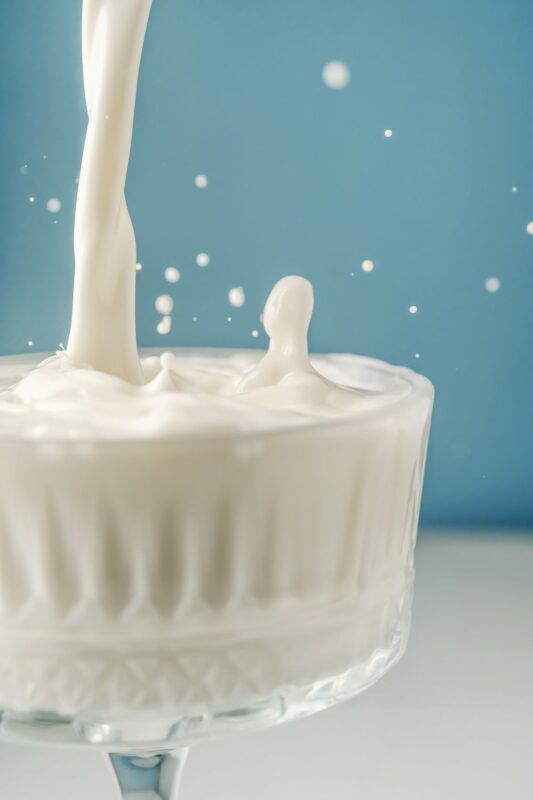
Yes, you can still drink milk if you have a fatty liver disease, but drink it in moderation. Milk has various nutrients that help us stay healthy, including Calcium, Vitamin D and others.
Despite this, there are still many people, including nutritionists, who recommend staying away from dairy products if you have fatty liver. The main reason is that milk has some fat and some carbs, but also that some people are lactose intolerant.
But let’s look at the numbers first and see if the fat and sugar in regular milk is really that worrysome.
According to Google and Wikipedia, here is the nutritional sheet for whole milk (with a standardized 3.25% fat content):
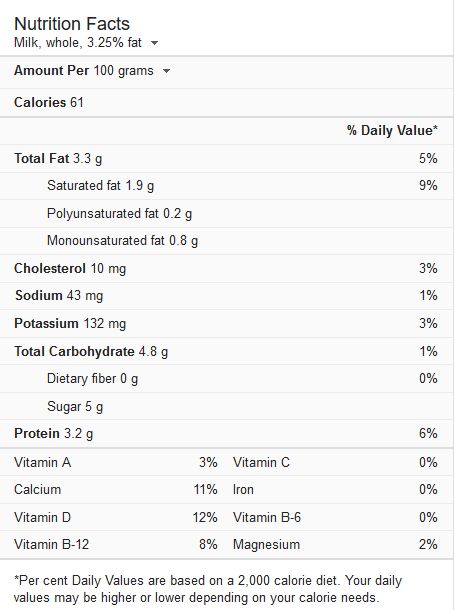
The values above are for 100 grams. This means that for a cup or glass of milk (the amount most of us usually consume), we get 8 grams of fat, out of which 4.6 are saturated fat. There are also 12 grams of carbohydrates in a glass of milk.
However, things change quite a bit when dealing with low fat milk (1% fat):
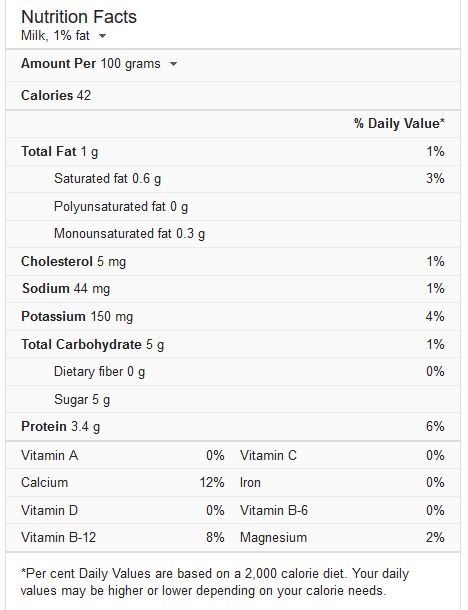
This translates into just 2.5 grams of fat (out of which 1.5 are saturated) per cup, although the amount of carbs remains the same.
But looking at the other numbers, we see that 100 grams of milk also have other very useful minerals, especially calcium. It has a high content of Vitamins (B-12 and D), as well as some protein and magnesium.
In other words, we’re getting a lot more from milk than just the fat and sugars that most people look at.
And compared to most other foods out there – especially processed foods -the percentage of fat and carbs is really low in both full fat and low fat milk.
Which in turn means that, based on these values, there’s no reason for you to stop drinking milk if you have a fatty liver.
We even have a study made in 2011 that found out that milk has beneficial effects, protecting the liver against NAFLD (source here, study made on rats).
However, it’s pretty much obvious that if you are to drink milk, the low fat option is better for you since it has less fat and everything else remains the same.
Even the nutritional data above seems to be slightly off, with many sources I’ve seen online showing that there is still vitamin D in skimmed or low fat milk.
Why the hate for low fat milk when suffering from a fatty liver?
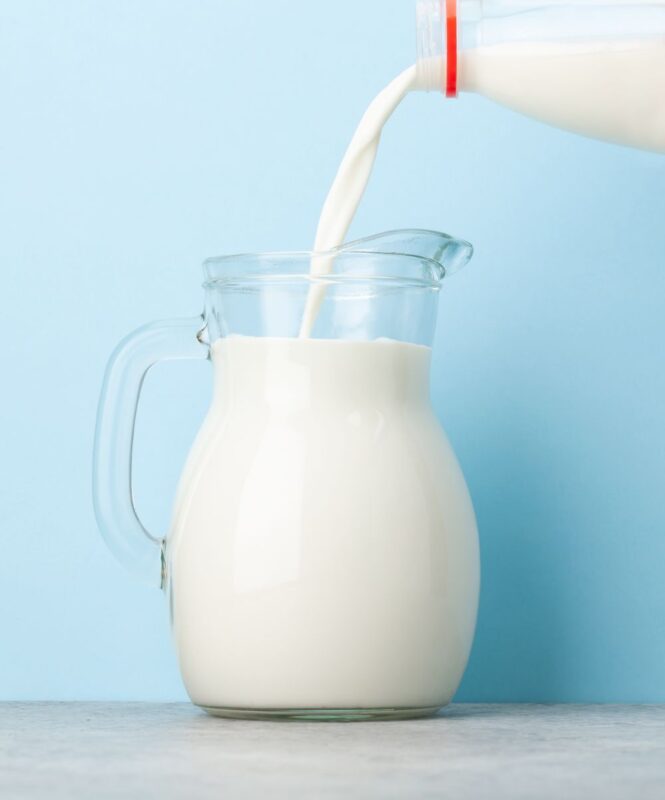
Despite the things that we’ve seen above, there are still many people who claim that low fat milk is worse than full fat one.
But if you read those articles or even studies carefully, you will see that there are some important things you have to take into account.
Many of the studies regarding the consumption of low fat milk versus regular milk find that those going with the former are usually in poorer health or eat more throughout the day.
Automatically, they find low fat milk as the main reason for that. But the truth is that it’s definitely not the case and we should look at the big picture instead.
Who drinks low fat milk and really looks at nutritional values and such? Those who already have health related problems or those who need to lose weight and try various diets (and usually fail).
However, it’s not the milk itself that is the cause of this – if you can stick to a diet and don’t overeat, low fat milk will not be harmful simply because it brings less fat to your body and lots of other benefits.
The simple fact that people drinking low fat milk are in poorer overall health is due to them already being overweight or suffering from various health problems. Even if they didn’t drink milk at all, their overall condition would still be poor.
Also, many claim that the low fat milk is not healthy because it is processed. Well… guess what? Full fat milk is processed as well because the fat contents must be the standardized in all bottles of milk sent to all stores in the country.
Cows (or whatever animals are giving that milk) won’t all deliver it with the same amount of fat, every day of the year.
So the “full fat” milk has to be processed as well in order to meet the nutritional info on the label. In many cases, the actual amount of fat in regular milk is higher than the standard 3%.
However, in both cases, this processing is not harmful to the health benefits of the milk itself as they only add or remove extra fat from it and use no preservatives or chemicals in the process. You can find out more here.
Finally, some claim that low fat milk is unhealthier because extra sugar and other bad things are added to it in order to make it tastier. But this is not a rule.
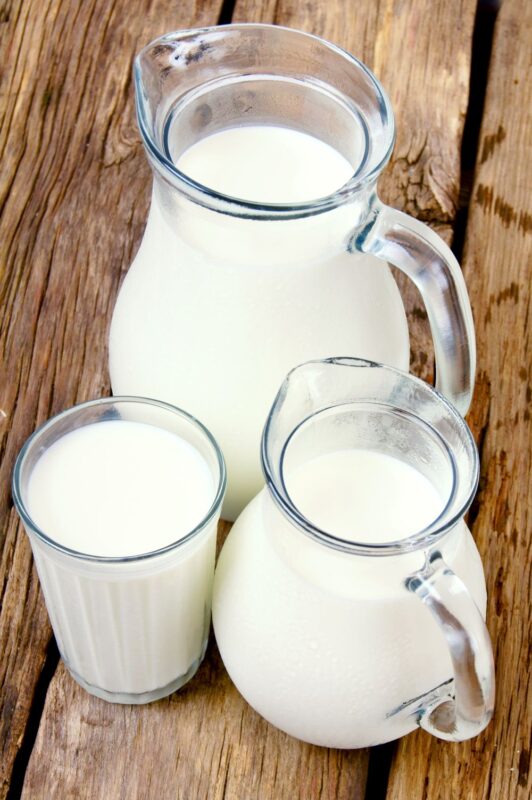
All you have to do is simply read the list of ingredients: if it’s only milk listed there, then you are safe to drink it. If it has sugar and other stuff, just look for a different brand!
Low fat milk is not unhealthy because companies decide to add sugar to it – just don’t drink that milk! Buy the milk that’s 100% cow milk (or whatever milk you want to buy) and that’s it!
Full fat milk would be just as unhealthy if sugar was added to it. Water becomes unhealthy if you add sugar to it – but this doesn’t mean that otherwise it’s bad for you.
So, the bottom line is that all the hate towards low fat milk comes from people who don’t look at the big picture.
It’s just like with drinking soft drinks with a fatty liver and especially diet sodas – people claim these make people fat, when it’s actually those who are already overweight who try to cut down on calories and consume these types of products..
Low fat vs full fat milk for fatty liver: The Conclusion
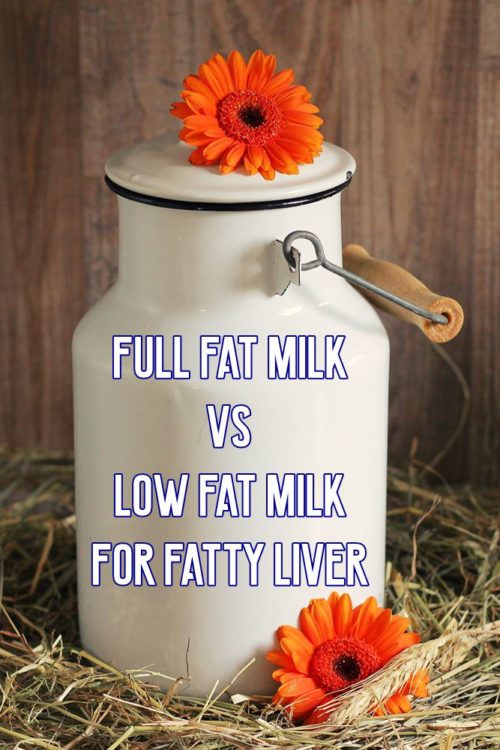
Based on my own experience and after having reversed my fatty liver, I would say that you shouldn’t stop drinking milk if you have fatty liver disease.
There’s absolutely no reason to go for full fat version of it, unless you like the taste better.
I personally drank (and still drink) low fat milk since being diagnosed and I have reversed my fatty liver in the mean time. I am sure that not because of this, but it certainly didn’t cause any harm either.
So unless you have other problems that milk causes you (like being lactose intolerant) and you usually drink milk, I think you can continue to have it.
It’s not like other types of beverages – for example, you should definitely stop drinking alcohol if you have a fatty liver, no matter what!
In my opinion, this whole thing is extremely simple: low fat milk has fewer calories and less fat, while preserving almost the same nutritional values of full fat milk. So there is absolutely no reason to go for the latter!
But even if you decide to choose full fat instead, drinking a cup per day shouldn’t be a big problem.
Just keep an eye on those calories, fats and carbs and make sure you don’t overeat at the end of the day! Moderation is key.

I was diagnosed with a fatty liver back in 2014 and managed to reverse it by mid-2015. Since then, I’ve been studying it, continuously updating my knowledge with the latest scientific findings and practical approaches to give others the help they need to reverse their condition.
My approach to managing fatty liver is holistic, balancing scientifically-backed information with real-life, practical advice based on personal, direct experience.
I am also the admin of the Fatty Liver Support Group on Facebook and the Fatty Liver Subreddit.

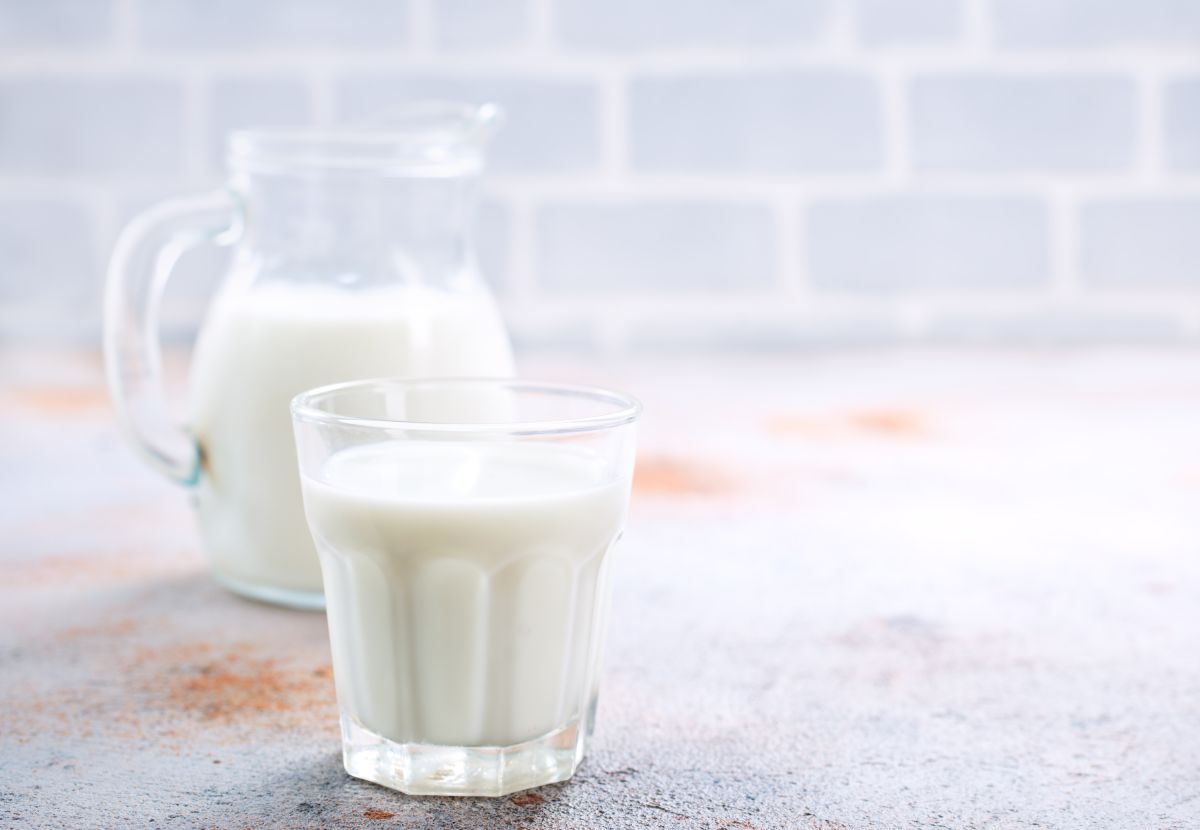
Hi,
I drink unsweetened Coconut Milk usually with porridge and blueberries or the odd time in a small glass with a meal. I do eat nuts that are targeted for my thyroid which is in a sorry state though no pain now so the nuts and seaweed are making a difference.
My thyroid numbers from a 3T3 blood test showed T3 at I think below 11 and should be 20 and T4 at I think a 6 or 7 and should be a 15.
Would be interested in anything else that someone may suggest.
Caio, Brookes Bonnell aka Glenna Hall
After decades of iodine deficiency, a lttle seaweed will not replenish the body. See Dr Bronsteins book Iodine: Why You Need It And Cant Live Without It. Also some foods can interfere with iodine uptake such as brocoli and some nuts. Dr Kerry’s book Breast Cancer and Iodine identifies 13 major uses for iodine in the body.
Very interesting as its been a year now that I started to drink 2 lattes in the morning my diet has not changed apart from the 2 lattes a day and my liver profile has gone up From 97 to 127 within a year,So I stopped drinking lattes for the past week i just drank coffee with a touch of half fat milk and I’ve lost 6lb of weigh which is good as I cut out sugar before hand and only lost 2lbs within 6 weeks.
Congrats! Lattes (especially those bought in the stores) have a lot of fat and carbs and most likely other processed baddies.
I am broaderline hyperactive thyoid. Unsure i can take Iodine or seaweed and the effects on the fatty liver.
Also I have a skinny Cappuccino once a month. Is that ok to have with a fatty liver?
You should definitely talk to your doctor about iodine or seaweed – I am no expert, but I know that iodine is a very sensitive situation when it comes to a fatty liver. Regarding the Cappuccino – once a month I am sure it’s not going to be a problem.
My Naturopathic doctor is right on the issue and I am not consuming too much. I have been looking up information on T cells and L cells and their workings with the glandular systems relative to the Thyroid.
As well have been looking at info re the liver and will be taking Dandelion Root Tea which detoxifies the Liver and use still Milk Thistle will try to get sesamin.
Right now, I am in a Thyroid fog and really tired.
Hello Lynn,
I love your site! I have fatty liver, but have lost 20 lbs. lately and am down to 249lbs. I want to get down to 195 lbs. I too have struggled with this website and that website having seemlessly conflicting information. After days of sorting facts, reading your successes and researching diets I am glad to say I have found my perfect diet! I start the day with a cup or two of light roast coffee which contains more polyphenols and caffeine than the darker french roast. I never eat breakfast or lunch and stick to one meal around five thirty daily. I believe Omega 3’s and Omega 6’s are the key, keeping carbs to under 40 daily, eating a can of King Oscar Sardines daily, eating black beans three times a week, staying away from all meats for awhile, drinking water or skim milk, drinking V8 for potassium and NO Alcohol works for me. I love eggs in moderation and consume no saturated fats. Oat Bran and Whole Flax Seed Meal is the best. I also eat a raw Brushell Sprout salad daily with GOOD REAL Olive Oil. I take a Rainbow Light Active Adults over 50 multi vitamin daily. I also take several other supplements daily all of which are very pure with no lead, Mercury or Arsenic. If you would like my list let me know.
Thanks!!!
Hello Raymond,
It seems that you’re taking the right steps to reverse your fatty liver. If you can do it eating just once per day, that’s good for you! However, there are studies saying that it’s healthier to have more smaller meals per day – it’s up for you to decide what to believe and what not. But overall, based on what you’re saying that you’re eating and based on your results, you’re doing great. Keep up the good work!
Half the reason people are unhealthy is for the fact we stopped drinking full fat milk. Studies show over 11 years those drinking full fat are fuller and healthier than those who drink skimmed milk and less obese. Like seaweed full fat milk contains iodine, and we lack this too. Pregnant woman without ffm in their diet causes low IQ in babies in the womb and lower cognitive abilities in adults. Well I could go on but as for fatty liver it’s probably true drunking less fat or sugary milk.
I have a problem of hep B, for two years now my LFT is showing ASAT/GOT =45 and ALAT/GPT =36 and VL result <20 IU/ml result was checked on 09/09/2019.Before I started treatment the VL was 49744.5coppies in July 2018. For long should the treatment continue pliz ? .advise me.